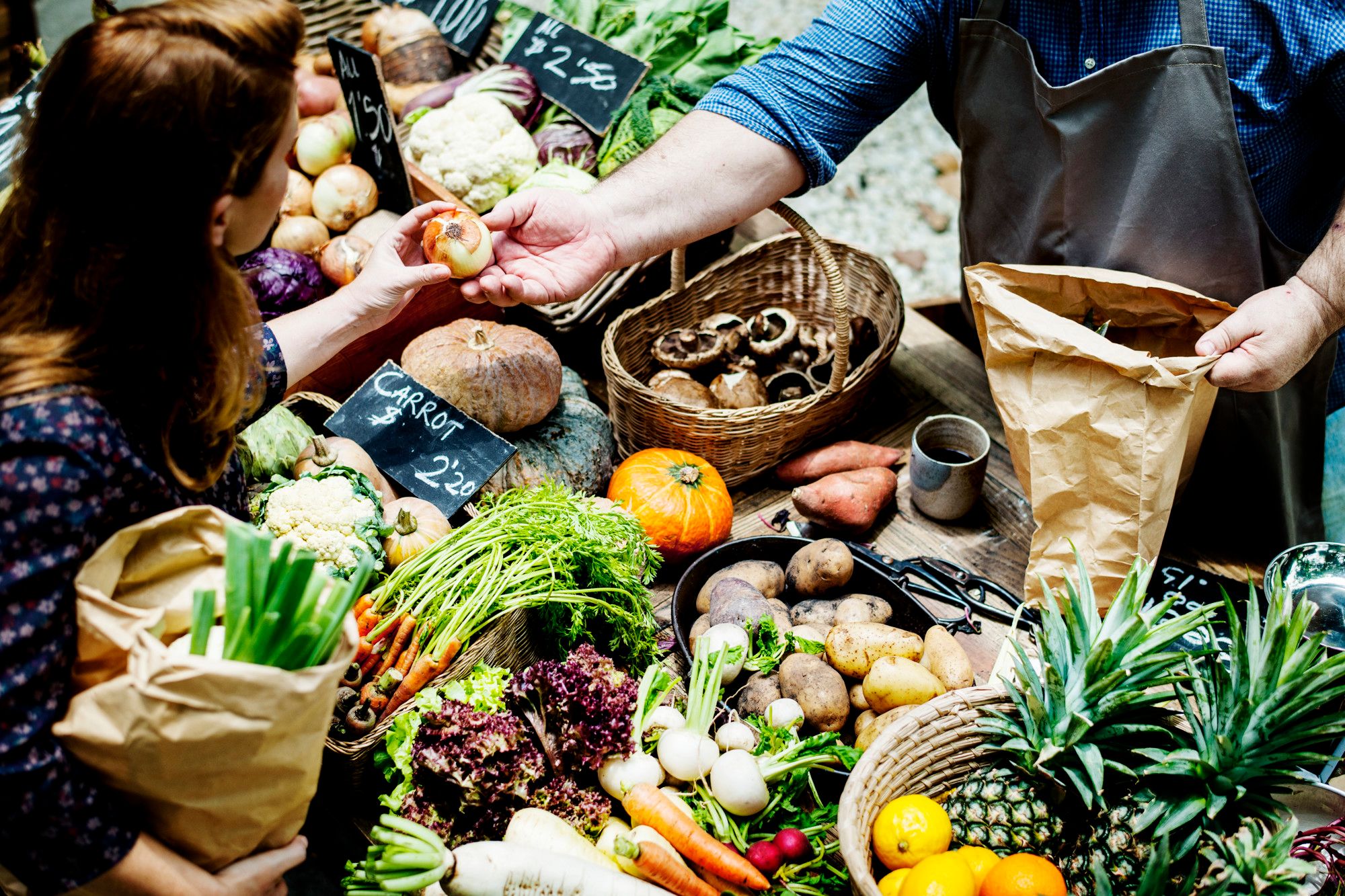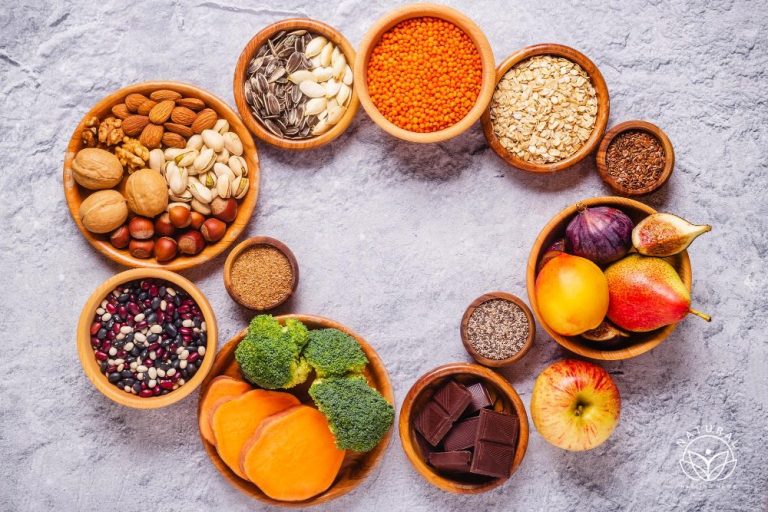Why More and More People are Going Organic

The statistics are in and they show that more and more people are going organic.
There are a number of reasons for this growing trend, but chief among them are the health benefits of organic food and the negative environmental impacts of conventional farming.
Organic food is grown without the use of synthetic pesticides and fertilizers, which can have harmful effects on both the people who consume them and the environment.
In addition, organic farmers often use sustainable farming practices that help to conserve resources and improve the quality of the soil. As a result, organic food is not only healthier for people, but it is also better for the planet.
With the increasing popularity of organic food, there are now more choices than ever before. And as more people learn about the benefits of eating organic, it is likely that even more will make the switch.
Going Organic
1. Quality:
Many people believe that organic foods are better for your health because they are free of pesticides, growth hormones, and other synthetic chemicals.
There has been a growing movement in recent years towards organic foods. Many people believe that organic foods are better for your health because they are free of pesticides, growth hormones, and other synthetic chemicals.
There are a number of reasons why people might choose to go organic. For some, it is a matter of personal health and avoiding exposure to potentially harmful chemicals.
For others, it is about environmental sustainability and supporting farmers who adopt organic practices. And for many, it is a combination of both. There is still some debate about the health benefits of organic food.
Some studies have shown that organic food is no more nutritious than conventionally-grown food, while others have found higher levels of certain vitamins and minerals in organic produce.
However, one thing that is not in dispute is that organic food is free of synthetic pesticides and fertilizers. These chemicals can have harmful effects on human health, particularly if they are consumed on a regular basis.
Pesticides have been linked to a number of health problems, including cancer, brain damage, and developmental disorders. Growth hormones, meanwhile, can disrupt the natural development of the body, and have been linked to a variety of health problems in both animals and humans.
While the jury is still out on the exact health benefits of organic food, there is no doubt that it is better for your health to avoid exposure to synthetic chemicals. For many people, this is reason enough to choose organic food over conventional food.
2. Environmental impact:
Organically-grown foods are better for the environment because they do not require the use of harmful chemicals that can pollute the air, water, and soil.
Organic foods are those that are grown without the use of synthetic pesticides, herbicides, or fertilizers. Proponents of organic farming say that it is better for the environment, because it does not require the use of harmful chemicals that can pollute the air, water, and soil.
Organic farming also uses fewer resources, such as water and energy, than conventional farming. And, organic farmers often use sustainable practices, such as crop rotation and cover crops, that help improve and protect the quality of the soil.
Organic foods are not only better for the environment, but they are also generally healthier for you. That’s because they are not exposed to the same harmful chemicals that conventional foods are.
So, if you’re looking to do your part for the environment, and eat healthier in the process, then switch to organic foods. You’ll be glad you did.
3. Sustainability:
Organic farming practices are more sustainable than conventional methods, as they do not deplete the soil of nutrients and do not require the use of fossil fuels for synthetic fertilizers and pesticides.
Organic farming practices are more sustainable than conventional methods for a number of reasons. Perhaps most importantly, organic farming does not deplete the soil of nutrients the way conventional farming does.
This is because organic farmers use sustainable soil management practices, such as cover crops and crop rotation, that help keep the soil healthy and productive.
In addition, organic farming does not require the use of fossil fuels for synthetic fertilizers and pesticides. Conventional farming relies heavily on fossil fuels, which release harmful greenhouse gases into the atmosphere and contribute to climate change.
Organic farming, on the other hand, relies on natural methods and materials, such as compost and mulch, which are much better for the environment.
Finally, organic farming is often more efficient than conventional farming, due to the fact that it uses less water and energy. This is because organic farmers focus on soil health, which helps the crops grow strong and healthy without the need for excessive amounts of water and fertilizer.
Overall, organic farming practices are more sustainable than conventional methods, as they help to preserve the health of the soil and do not contribute to climate change.
4. Animal welfare:
Animals raised on organic farms are typically treated better than those on conventional farms, as they are not given growth hormones or antibiotics and are allowed to roam freely.
While the price tag on organic goods can sometimes be higher than their conventionally-grown counterparts, more and more people are choosing to buy organic products for a variety of reasons – one of which is animal welfare.
Animals raised on organic farms are typically treated better than those on conventional farms, as they are not given growth hormones or antibiotics and are allowed to roam freely.
According to the Organic Trade Association, “organic standards require that animals have access to the outdoors, including pastureland, and are raised in a way that accommodates their natural behaviors.”
This means that animals raised on organic farms typically have a higher quality of life than those raised on conventional farms. In addition to being treated better, organic animals are also typically healthier than those raised on conventional farms. This is because they are not given growth hormones or antibiotics, which can lead to health problems.
Moreover, organic animals are typically fed a diet of organic feed, which is free of pesticides and other harmful chemicals. So, why are more and more people choosing to buy organic products? For many, it comes down to animal welfare.
By choosing to buy organic, they are choosing to support farmers who treat their animals well and provide them with a healthy diet and lifestyle.
5. Taste:
Some people believe that organic foods taste better than conventionally-grown foods because they are fresher and have more natural flavors.
Some people believe that organic foods taste better than conventionally-grown foods because they are fresher and have more natural flavors. While there is no scientific evidence to support this claim, it is understandable why some people believe it.
Organic foods are often fresher than their conventional counterparts because they are not treated with chemicals that prolong their shelf life. This means that they may have more intense flavors, which some people prefer.
In addition, organic foods are generally grown in smaller batches, which can also contribute to their fresher taste. It is important to remember that taste is subjective, and what one person may find to be delicious, another may not.
However, if you are looking for foods with more intense flavors, you may want to give organic foods a try.
As the world becomes more and more industrialized, there is a growing trend of people wanting to go back to more natural and organic products.
This is because people are becoming more aware of the harmful effects that chemicals and preservatives can have on their bodies. Organic products are also seen as being more environmentally friendly, as they are not grown with the use of harmful pesticides and fertilizers.
Overall, people are choosing to go organic because it is seen as a healthier and more sustainable option.






